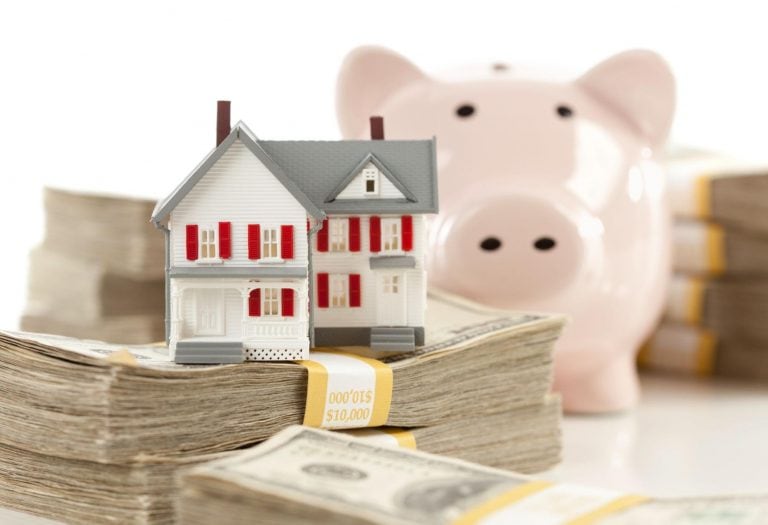Home equity by itself is not taxed in Canada. Home equity has to become a capital gain in order to be taxed, and that can only happen under specific circumstances upon the sale of a home. However, if you own a second home in, say, Ontario real estate, your home equity might wind up being taxed. Let’s get down to the details and see if you have to pay taxes on home equity.
What Is Home Equity?
If you’re wondering if you have to pay taxes on home equity, it’s worth understanding just what home equity is in the first place. Home equity is the difference between how much your home is worth and how much money you owe on it. If you bought a house in Toronto for $1.4M and paid it $1.4M in cash, then the difference between what the house is worth and what you owe on it is zero. You have all the equity.
If you bought a $1.4M house with $250K in cash and the rest in the form of a loan, your home equity would be $250K. Over the course of paying your mortgage, you’re putting the mortgage payments into that equity and growing it over time. The less you owe on your house, the higher your equity.
While you’re paying down your debt, the market is appreciating, and your home’s value is likely growing. So let’s say, after five years of ownership, your home has appreciated from $1.4M to $1.6M, and you’ve paid down your mortgage by $50K. Thanks to the appreciation in value, plus your mortgage payments, your equity is $500K ($250K + $50K of your payments and $200K of market appreciation).
How To Get Equity Out Of Your Home?

Currently, you don’t pay taxes on home equity when you borrow from it, because that isn’t considered taxable income. With a few exceptions, you don’t pay taxes on home equity when you sell your home either. Those exceptions, however, are important.
The Exceptions: Capital Gains Tax
The fundamental debate determining whether you have to pay taxes on home equity comes down to whether your home is considered an asset first and a residence second. Clearly, every home you own is an asset, but not everyone is buying a house with the same mindset that they buy stocks or bonds. If you’re just an everyday homebuyer who has lived in your home the whole time you’ve owned it, you won’t pay capital gains tax when you sell. But if you’re an everyday homebuyer who also has a nice summer cottage over in Prince Edward and sells that property, that will probably be considered a capital gain, and your home equity will be taxed.
The difference here is principal residency. There’s no set time limit for a property to be considered your principal residency; it just must be inhabited by you or someone directly related to you during the calendar year that you’re being taxed for. You can’t just claim a property is your principal residence and spend a weekend there, then go back to your main house. The CRA will investigate and make sure you’re telling the truth.
If you’re selling your home and claim it as your principal residence, it will not be subject to any capital gains tax on the equity earned during the time of principal residency. Residency is determined year by year. Even if you decided to spend two years living in a summer cottage you’ve owned for ten years, and successfully claimed it as your principal residency, when it comes time to sell, the equity built up in the eight years that your cottage wasn’t your principal residency will be subject to capital gains tax.
Let’s use an example to clarify.
Let’s say for twenty years you’ve lived in the same house in Scarborough and claimed it as a primary residence for all 20 years. The CRA verifies that this is true, and so when you sell that home you won’t be subject to capital gains tax, therefore you won’t have to pay taxes on home equity.
If, while owning and living in that home in Scarborough, you bought a second home way over near Thunder Bay to rent out or enjoy in the summer, and you decide to sell that home, you will have to pay taxes on the home equity of that house near Thunder Bay. If you decide to relocate to Thunder Bay and make that home your principal residence when it comes time to sell you’ll still have to pay capital gains tax on the value earned by the property when it wasn’t your principal residence.
So I Have To Pay Capital Gains Taxes. What Does That Mean?
Capital gains taxes are not as bad as they might sound. For one thing, capital gains tax applies only to 50% of the gains in question. If you sold a million-dollar house (that’s not a principal residence) with a down payment of $200K, you gained $800K in the eyes of the CRA. That’s a capital gain. But, only $400K (50% of the capital gain) will be taxed, and that tax rate depends on your tax bracket. So even if you’re taxed in the top tax bracket, only $400K will be subjected to that tax; the rest you get to keep tax-free.
Do You Have To Pay Taxes On Home Equity
















